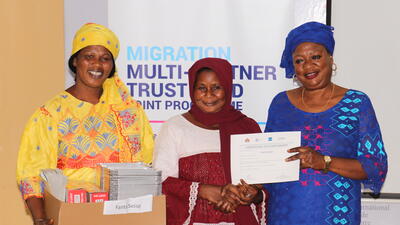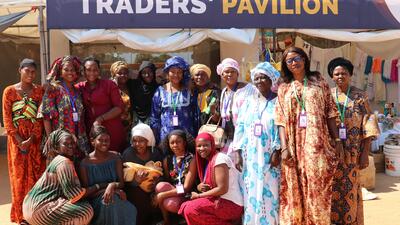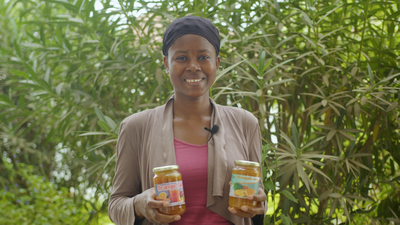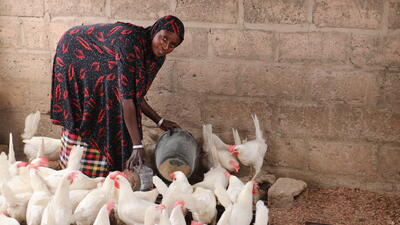
The Gambia launches Trade Information Centre, cashew and sesame sector strategies
Exporters in The Gambia are set to see their goods become more competitive in global markets following the launch of the country’s Trade Information Centre and two key sector strategies.
The International Trade Centre (ITC) joined the Ministry of Trade, Industry, Regional Integration and Employment (MOTIE) and the Ministry of Agriculture in presenting the Trade Information Centre and sector strategies for cashew and sesame on 18 June at MOTIE headquarters in Banjul.
The organizations worked together under the ‘Sector Competitiveness and Export Diversification’ project, funded by the Enhanced Integrated Framework mechanism, with the goal of enabling Gambian small and medium-sized enterprises (SMEs) to export higher-quality, value-added goods to global markets.
The Centre offers information on business contacts, product and market studies, market trends, trade agreements, business opportunities, quality and standards, and trade events, which can be accessed online through The Gambia Trade Information Portal.
‘This infrastructure provides Gambian businesses, policymakers, as well as foreign clients improved access to key trade information on a national level, from business requirements to market access to trade policy and strategy,’ said ITC Director of the Division of Country Programmes Ashish Shah during the launch. ‘The inclusive processes that led to the establishment of a trade information network have already involved close cooperation of the public and the private sectors.’
Boosting cashew, sesame exports
The sector development and export strategies for the cashew and sesame sectors are designed to support diversification of The Gambia's exports through the expansion of new market destinations and an increase in value addition through the development and commercialization of new products.
The strategies serve as a roadmap for members of the public and private sectors – including organizations such as the Cashew Alliance of The Gambia and the National Women Farmers’ Association – to work together to increase the quality and boost exports of these products. The strategies will enable The Gambia to strategically allocate resources and better coordinate trade-related technical assistance to orient initiatives to priority needs and opportunities identified by national public and private stakeholders.
The design and implementation of these strategies are aligned with those of other national planning frameworks, such as the national-development blueprint Vision 2020, the Gambia National Agricultural Investment Plan 2011-2015, the Programme for Accelerated Growth and Employment 2012-2015, the National Trade Policy and the National Export Strategy.















